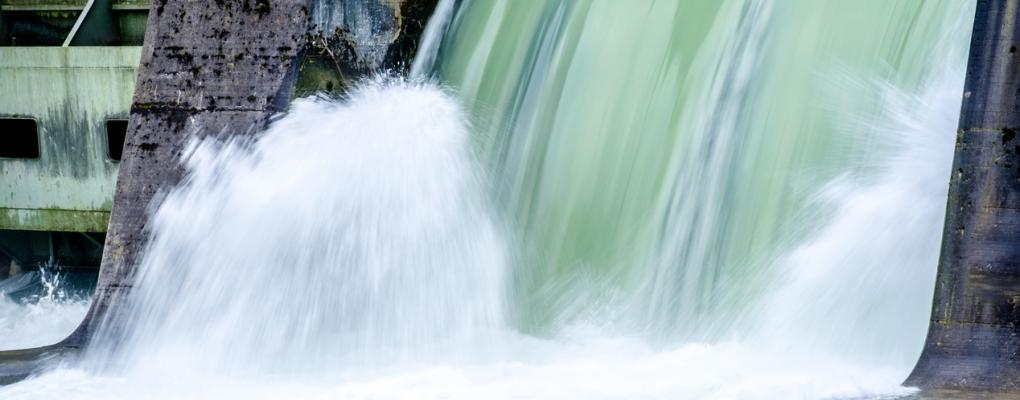
‘Direct procurement for customers’ (direct procurement for short) is a new delivery model for the regulated UK water sector, proposed by Ofwat (the UK water sector economic regulator) in December 2015[i]. Similar to PPP/P3, direct procurement is expected to drive value for customers by encouraging more competition in the sector, particularly in the financing and operation of water assets. Given this, water companies can apply existing frameworks such as the World Bank PPP/P3 methodology and the UK HM Treasury’s Better Business Case principles to help design, deliver and manage high-quality direct procurement schemes.
What is ‘direct procurement’?
Direct procurement requires UK water companies to consider long-term, DBFOM[ii] partnership arrangements for the delivery of large-scale assets. Ofwat’s guidance currently defines this as assets with a whole-life total expenditure of more than £100m. The final details of direct procurement, including the expenditure threshold, are currently under consultation, but Ofwat intends for it to come into force from 2020. Direct procurement may be applicable to a wide range of assets, from new reservoirs, to upgrades of existing treatment works and transfer pipelines.
Why has Ofwat introduced it?
By guiding companies to use direct procurement, Ofwat aims to introduce greater competition into the financing, delivery and operation of water assets. Ofwat hopes that direct procurement will deliver lower financing costs, based on the experience at the Thames Tideway (a major wastewater infrastructure programme currently underway in London, UK), where competition for financing led to an extremely low cost-of-capital. In addition, Ofwat believes direct procurement will introduce efficiencies into the water sector through:
1.Better allocation and management of risk;
- More focused long-term incentivisation and better value-driven trade-offs between opex and capex;
- Innovation: direct procurement investors are likely to have wide-ranging international and cross-sector experience – and therefore be able to bring new ideas;
- Greater clarity and certainty of costs and outcomes
Sound familiar?
PPP/P3 offers lessons for direct procurement
UK regulated water companies are privately owned and operated, and as such, direct procurement schemes will not be strictly public-private partnerships. However, direct procurement aims to bring more competition into the financing and operation of water assets through the creation of long-term partnership arrangements, much like PPP/P3 schemes in the public sector. As outlined above, the benefits Ofwat wishes to produce are very similar to those delivered by PPP/P3. Therefore, we believe that PPP/P3 experience offers many lessons that Ofwat and UK water companies can apply to direct procurement.
World Bank PPP/P3 framework and HM Treasury Better Business Case training will help water sector organisations deliver better direct procurement schemes
Direct procurement is significantly different to traditional models of asset delivery in the UK water sector. As a result the water industry are working to build experience and capacity in direct procurement-style models. Given the similarities between direct procurement and PPP/P3, the World Bank PPP/P3 framework will help water sector organisations understand how to design, implement and manage direct procurement schemes. Water companies can also apply HM Treasury’s Better Business Case principles to rigorously appraise and select the most appropriate schemes for direct procurement. We should expect demand for these skills to increase strongly in the UK water sector over the coming two to three years.
Water companies don’t need to ‘reinvent the wheel’ for direct procurement
Direct procurement represents a shift for how water companies design, deliver and operate water assets on behalf of their companies. Given this, delivering direct procurement will bring some challenges for the water industry. However, direct procurement shares many similarities with PPP/P3 which will be to the benefit of companies. For PPP/P3 there are existing frameworks to help companies select the most appropriate schemes and implement high-quality arrangements – such as the World Bank PPP/P3 framework and HM Treasury’s Better Business Cases guidance. Smart water companies will make the most of these existing frameworks to help them deliver high-performing direct procurement schemes. This will help direct procurement deliver Ofwat’s anticipated benefits, and change the UK water sector for the better.
Credits: Written by Will Nixon, Infrastructure Expert at PA Consulting and Mark Williams, Property and Infrastructure Lead / CP3P and BBC Trainer at PA Consulting.


